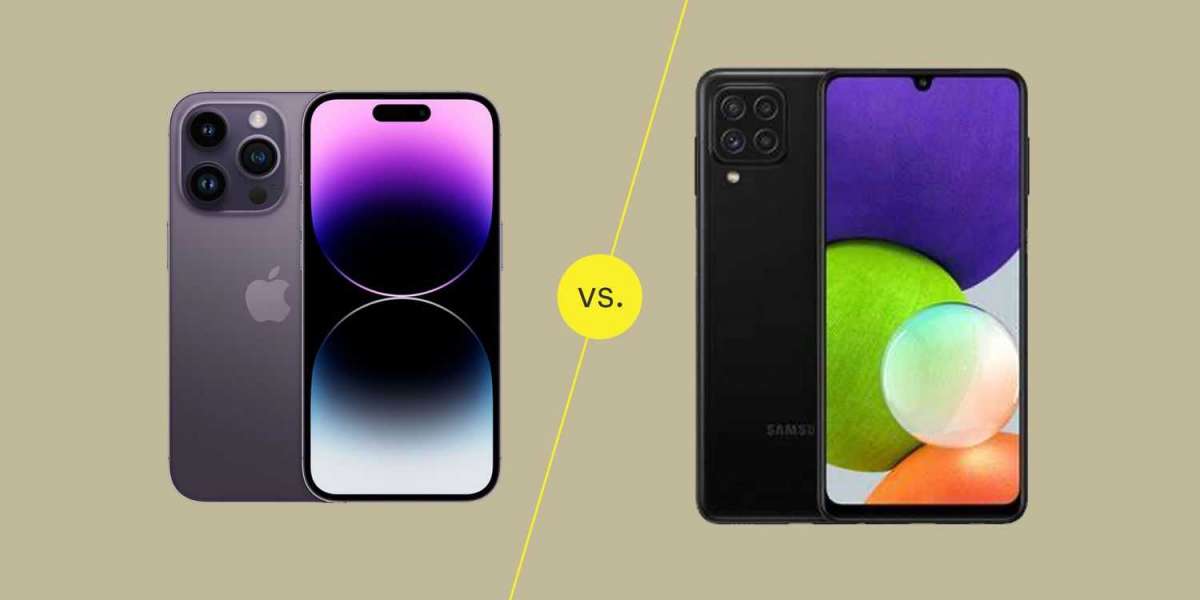When it comes to smartphones, two major players dominate the market: Android phones and iPhones. Both offer unique features and capabilities, but understanding the main differences between the two can help you make an informed decision when choosing your next smartphone.
In this article, we will explore the key differences between Android phones and iPhones, and help you determine which smartphone is best suited for your needs.
1. Operating System:
The operating systems of Android and iPhone phones differ most significantly from one another. Google created the open-source Android platform, which offers more freedom and customization options.
However, iOS, a closed-source operating system created by Apple, powers iPhones and is renowned for its smooth interaction with other Apple products as well as its more regulated user interface.
2. Device Options:
Android phones give users plenty of alternatives in terms of style, features, and price points by offering a large selection of device options from multiple manufacturers. On the other hand, iPhones are made solely by Apple and come in a smaller but carefully chosen range of gadgets that are renowned for their elegant designs and superior construction.
3. Customization:
The ability to change the user interface and customize the phone to a user’s tastes is one of the main benefits of Android phones. Android users can personalize and adjust their user experience by installing custom launchers, changing themes, and customizing widgets.
iPhones, on the other hand, provide a consistent and user-friendly experience across all devices thanks to their standardized interface and restricted customization possibilities.
4. App Ecosystem:
Although the app ecosystems for Android and iPhone phones are both quite large, there are notable distinctions in terms of availability and exclusivity. While the Apple App Store is renowned for its high-quality control and carefully chosen selection of programs, the Google Play Store boasts a large selection of apps, many of which are free.
When deciding between Android and iPhone, it’s important to take your app preferences into account as some apps might only be available on one platform or have different release dates.
5. Hardware and Performance:
There are many various hardware options available for Android phones, catering to a variety of budgets and performance requirements. This implies that different Android phones have different amounts of RAM, storage, and computing power.
However, even with weaker specs than some Android competitors, iPhones are renowned for their well-integrated hardware and software, which leads to seamless performance and effective resource management.
6. Camera Quality:
Both Android phones and iPhones have made significant advancements in camera technology, but there are some differences in terms of image processing and software optimization. iPhones are renowned for their excellent image quality, color accuracy, and low-light performance, thanks to Apple’s meticulous camera software and hardware integration.
Android phones, on the other hand, offer a wider variety of camera options, including devices with high megapixel counts, multiple lenses, and advanced manual controls.
7. Integration with Other Devices:
If you already own other Apple devices such as MacBooks, iPads, or Apple Watches, an iPhone may offer a more seamless and integrated experience. Apple’s ecosystem allows for effortless synchronization and sharing of data between devices, making it convenient for users who heavily rely on Apple products.
Android phones, on the other hand, offer compatibility with a wide range of devices and platforms, providing more flexibility for users who prefer a mixed ecosystem.
8. Battery Life and Charging:
For smartphone users, battery life is an important factor to take into account. Compared to iPhones, Android phones frequently have larger batteries, which might mean longer battery life.
Furthermore, a lot of Android phones come with wireless and rapid charging capabilities, giving you easy ways to keep your smartphone charged. Despite their reputation for effective power management, iPhones’ smaller batteries may mean that they need to be charged more frequently.
FAQs:
FAQ: Can I transfer my data from an Android phone to an iPhone?
Answer: Yes, it is possible to transfer your data from an Android phone to an iPhone. Apple provides a “Move to iOS” app that allows you to transfer your contacts, messages, photos, and other data wirelessly during the setup process of your new iPhone.
FAQ: Can I use Google apps and services on an iPhone?
Answer: Yes, you can use Google apps and services on an iPhone. Google offers a wide range of apps such as Gmail, Google Maps, Google Drive, and Google Photos, which are available for download from the App Store, allowing you to seamlessly integrate your Google account with your iPhone.
FAQ: Are Android phones more affordable than iPhones?
Answer: Android phones generally offer a wider range of price options, including budget-friendly devices. However, it’s important to note that both Android phones and iPhones come in various price ranges, and the cost can vary depending on the brand, model, and specifications of the device you choose.
Conclusion: Choosing between an Android phone and an iPhone ultimately depends on your personal preferences, needs, and priorities. Android phones offer greater customization, a wider range of device options, and flexibility in terms of hardware and software. On the other hand, iPhones provide a seamless and integrated user experience, premium build quality, and optimized performance. Consider the differences outlined in this article to make an informed decision and select the smartphone that best suits your lifestyle and requirements





